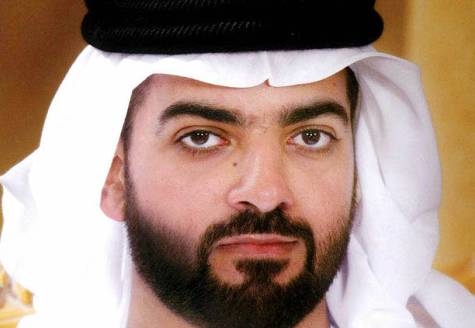By Camilla Hall in Abu Dhabi
 Sheikh Hamed Bin Zayed Al Nahyan
Sheikh Hamed Bin Zayed Al Nahyan
Adia
said in its an annual review published on Tuesday that annualised rates of
return increased to 7.6 per cent on the back of global economic growth,
compared with 6.5 per cent in 2009, the first year the fund reported 20-year
annualised rates of return.
Annualised
rates of return over the 30-year period were little changed at 8.1 per cent in
2010 compared with 8.0 per cent the year earlier, the fund said.
Adia,
which was set up in 1976 to protect the future wealth of Emiratis, is a
long-term investor and acts much like a pension fund. The fund may publish its
results over a longer period to reflect the long-term nature of its
investments. However, it may also reflect Adia’s preference to shy away from
the media spotlight.
The
report is the first to be released under Sheikh Hamed bin Zayed Al Nahyan, the
managing director and a senior member of Abu Dhabi’s ruling family, who took
the helm at Adia last year after the previous managing director died in a
glider accident.
“While
remaining diversified across all major global markets, Adia continued to
benefit during 2010 from its decision a year earlier to tilt exposures in the
portfolio towards asset classes and regions able to benefit from better growth
prospects,” Sheikh Hamed wrote in the review. “This is an approach that remains
in place as we enter 2011.”
Adia,
with an estimated $342bn in assets according to Monitor Group, allocates 60 per
cent of its total portfolio to externally-managed indexed funds.
Overall,
about 80 per cent of the fund’s assets are invested by external fund managers.
“While
developed economies continue to demonstrate their ability to innovate and grow,
the secular shift in global economic weight from developed to fast-growth
emerging economies has accelerated as a result of the financial crisis,” wrote
Sheikh Hamed.
“Greater
demand from this expanded global marketplace will provide a positive investment
climate as it drives new discoveries in life sciences, alternative energy, and
other emerging technologies.”
The
internal equities department created two new portfolios last year, one for
India and one for Latin America, according to the report. The real estate
department increased investments in the hospitality sector.
This
year the fund revamped one of its main fund management divisions, when Sheikh
Mohammed bin Khalifa Al Nahyan, a son of the president of the United Arab
Emirates and ruler of Abu Dhabi, moved to head a new indexed fund department.
Two
new departments, including indexed funds, have replaced four former departments
based on geographical divisions: the US, Europe, the Far East and Emerging
Markets.
The
restructuring came amid broader government changes to state-linked companies as
the oil-rich emirate grapples with a real estate slump and starts to reassess
some of its more ambitious development projects.
Adia’s
assets are largely allocated to developed equity investments, according to the
report.
Allocations
to developed equity markets constitute 35 to 45 per cent of the fund’s
portfolio while emerging market equities make up 10-20 per cent. Government
bonds make up 10-20 per cent of the portfolio at any one time.
The
fund is technically able to hold 0 per cent cash while a maximum of 10 per cent
is applied, according to the report.
The
fund’s geographical allocations include 35 per cent to 50 per cent in North
America, 25 to 35 per cent in Europe, 10-20 per cent in developed Asia and 15
to 25 per cent in emerging markets, according to the report.
This article was published in The Financial Times on 13/09/2011
Se qualcuno vuole andare in pelleggrinaggio nei paesi arabi - gueriglisti in pellegrinaggio e accenddre qualche candela ha pagamento con offerta libera per povera gente - cosa potreste offrire? Niente case niente bar niente alberghi
ReplyDeleteIl carburante aereo abolire freccie tricolori evutilizzarlo per viaggi turistici e vacanze al clima caldo UAE Onan Baharin Quatar ArabiacsauditacEgitto marocvo palestina Ecc
ReplyDeleteErmelinda M. Brescia italia